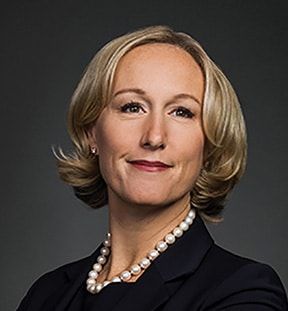- Center on Health Equity & Access
- Clinical
- Health Care Cost
- Health Care Delivery
- Insurance
- Policy
- Technology
- Value-Based Care
COA’s Policy Agenda Gains Steam on Capitol Hill, as the House Elects a Speaker
There is bipartisan support in the Congress for the Community Oncology Alliance's (COA) key agenda items, with hope that some will pass by year’s end.
After more than a decade of educating members of Congress on terms such as pharmacy benefit managers (PBMs) and site neutrality, leaders of the Community Oncology Alliance (COA) have bipartisan support in the Congress for key agenda items, with hope that some will pass by year’s end.
Now, with Rep. Mike Johnson, R-Louisiana, elected the new House Speaker after weeks of upheaval, COA can get back to moving its agenda.
On Monday, there was a sense of victory being close at hand, but constrained by factors beyond anyone’s control, as oncologists heard a policy update during the COA Payer Exchange Summit in Reston, Virginia. Miles away, House Republicans were huddled for another day
Patt

to seek a replacement for former House Speaker Kevin McCarthy, R-California.
Mortier

Oncologists and other stakeholders heard from Debra Patt, MD, PhD, MBA, vice president of COA and executive vice president of Texas Oncology, and Jeff Mortier, principal of Farragut Partners, which has represented COA in Washington, DC, for more than a decade. Nick Ferreyros, managing director of Policy, Advocacy, and Communications for COA, moderated the discussion.
Patt, fresh off an October 19 appearance before a House Energy and Commerce subcommittee on Medicare proposals to improve access, shared her ability to run through COA”s “greatest hits,” which Ferreyros noted are covered in 22 bills that address disparities in reimbursement between hospitals and community oncology practices, challenges with implementation of the 2015 Medicare Access and CHIP Reauthorization Act (MACRA), which created new reporting requirements for physicians, and, of course, the 340B program.
Regarding MACRA, “We don't feel like it's meaningfully contributing to improvements in patient care,” Patt said, citing the Merit-based Incentive Payment System, or MIPS, which many oncologists could bypass under the Oncology Care Model but now cannot, unless they take on the highest levels of risk in the Enhancing Oncology Model.
Patt was able to connect the dots between the 6% rise in Medicare premiums with $9 billion that is being repaid to hospitals under a settlement of a Supreme Court case about the 340B program. The program, which allows safety net hospitals to purchase high-cost drugs at a discount and then bill insurers at full rates, has received extensive press attention and is now being investigated due to concerns that the program’s original intent. COA has argued for years that 340B, which started with good intentions, has been converted to an ever-increasing revenue stream, as health systems extend the reach of 340B to clinics far beyond urban areas.
At the hearing, Patt said the conversation turned to “site neutrality,” which centers on the unfairness of oncology practices being asked to compete with health systems that not only have a different reimbursement schedule but also leverage 340B.
“Every time I'm in front of a member and talking about site neutrality, I feel like I have to follow-up the vernacular with an explanation [and] the definition. Not this time,” Patt said. “Everyone said, ‘So, we know that site neutrality is a major challenge because of the disproportionate reimbursement of hospital systems.'”
Finally, Patt said she was able to address the recent CMS decision to use a “Frequently Asked Questions” document—not even a formal rulemaking—to reinterpret the Stark Law after the public health emergency was lifted May 11, 2023. This has meant that oncology practices with in-house pharmacies can no longer dispense oral oncolytics via mail order or to a care giver. COA has sued over this action.
Both Patt and Mortier said it’s clear that years of educating members of Congress about COA’s issues—along with the press coverage of abuses of the PBM program—have allowed the group’s agenda to break through.
“I was honestly shocked that it was it was such a sampling of all of our community oncology issues,” Patt said—especially following a 4-hour recess.
“For the first time, on a recorded meeting, someone asked me, 'Isn't 340B just a cost to the manufacturers?' And I got to say—in testimony—when manufacturers discount drugs for the 340B program, if you're selling 30% of your goods at a 50% discount, more or less, you have to raise prices to maintain a stable profit margin," Patt said. "And that puts the cost of 340B program on the American taxpayer.
“I got to say that in a committee, which was not something I could have done 5 years ago,” she continued. “I think that there's also a lot of frustration around PBMs, and the recognition that transparency is the first step to make that better.”
Mortier said the bipartisan awareness and support for COA’s agenda is the result of years of hard work by COA members, who have come to Washington for “Hill days,” and reached out to members of Congress in their districts. He agreed that movement on the PBM issue is quite notable, given that just a few years ago few knew what the term meant. “Pretty much any body with investigative powers is looking at PBMs,” he said.
Ferreyros asked Mortier to assess what items had a chance to pass before the end of the year. Mortier said the issue of PBM transparency had strong support—he described one hearing where members who are ideological opposites were nodding in agreement that this must happen.
Factions in House Republican conference could make it challenging for Congress to complete its usual year-end legislative agenda, when larger bills move with “Christmas tree” items attached—these are policy items that are related to “must pass” spending bills. Much of COA’s agenda could be considered in these legislative packages.
“We were joking that this year’s Christmas tree is going to look more like the Charlie Brown one, as opposed to the giant Rockefeller Center tree with all the ornaments,” Mortier said.
“But I will say, these issues aren’t going away,” he said. Congress may take time to focus on an issue, but “When they finally do focus, it's really hard to get them away from that.”
Just as the drug pricing issue reached a point where members felt they had to act and pass the Inflation Reduction Act, Mortier said the PBM issue has reached the same point. So, even if the legislative agenda for Congress is leaner, he is optimistic the PBM issues will remain front and center.
What’s left, he said, is a solution for reimbursing physicians. There’s acknowledgement that language in the IRA will make things worse for independent practices, but it’s not clear yet what mechanism is best to fix it. There’s no enthusiasm for reopening the IRA, he said.
Ferreyros reflected on how far COA has come.
“We're in a position where all of these issues we've been talking about, and also all the issues that the various stakeholders throughout today have been talking about—this is not something that 5 to 10 years ago, we would have been talking about as much in a stakeholder collaboration meeting.”
